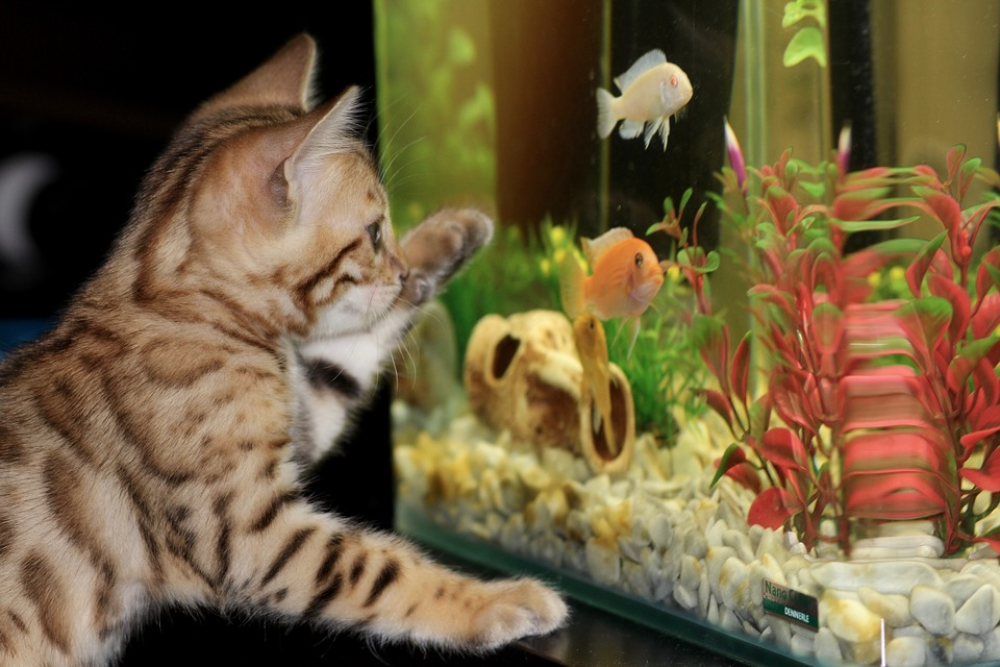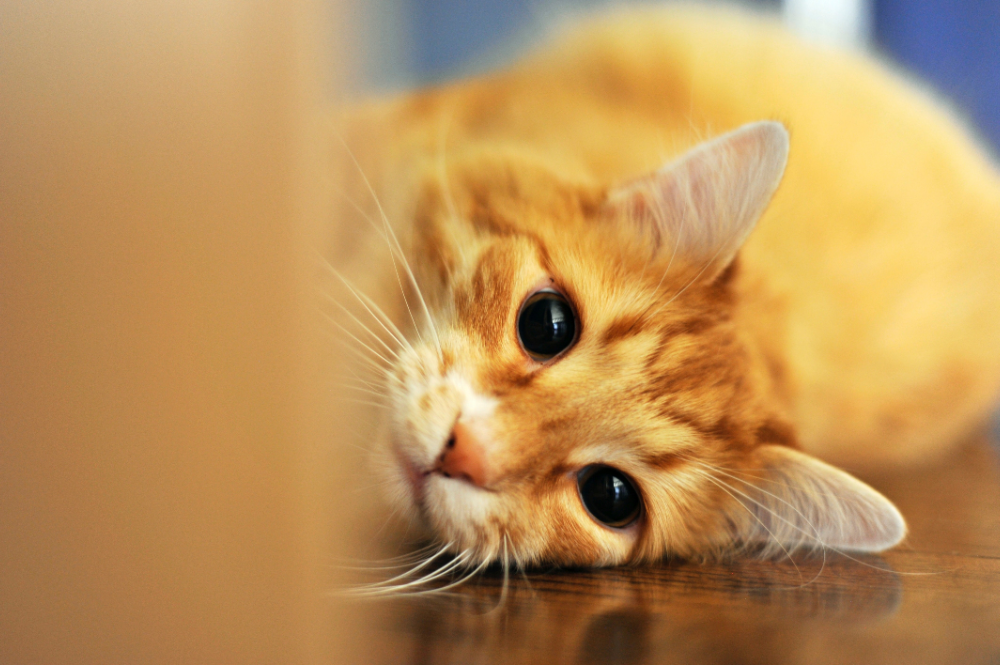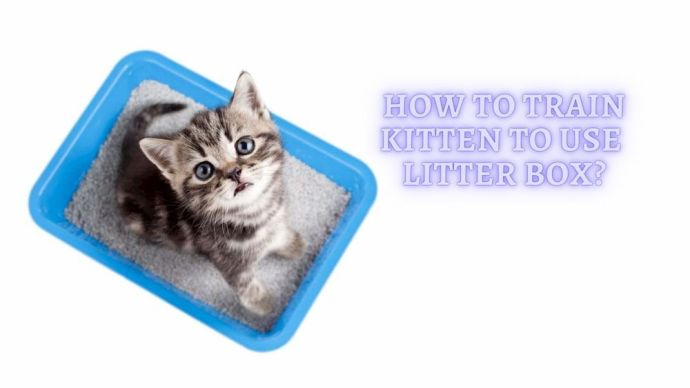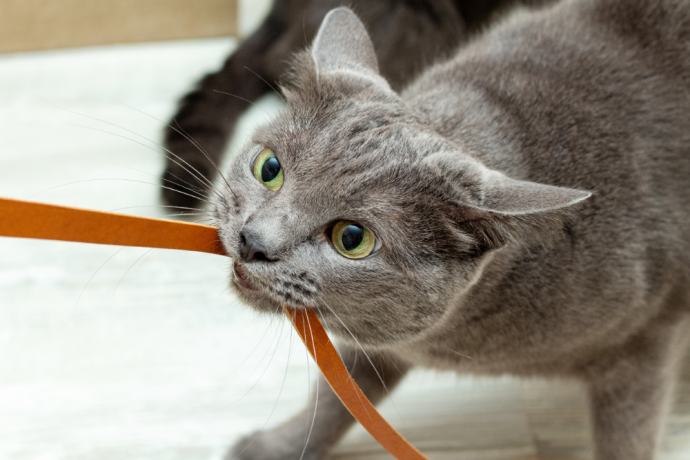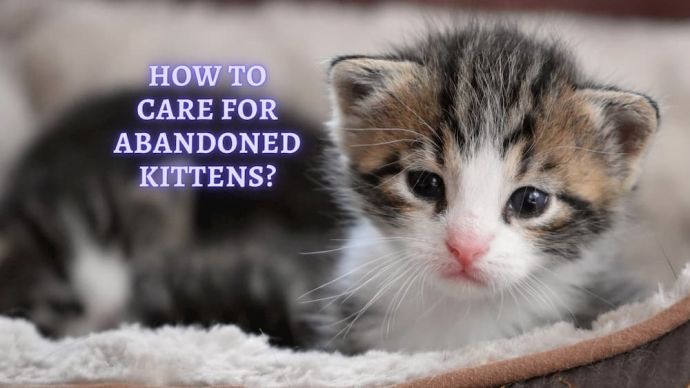How to Raise a Kitten: Veterinary Advice
Written by:
Author: Dr. Linda Simon
Dr. Linda Simon is a veterinary surgeon working with seven years of experience. She is a fellow of the British Veterinary Association and specializing in animal medicine. Also, she has been the Woman magazine resident vet for the past two years and writes a regular column for them, focusing on pets and their health.
View all 30 articlesLearn about our editorial process and veterinary review board.
Viewed: 2603
Updated on: 07/21/2021
Though it is easier now than ever to purchase a kitten, whether it be from a friend, your local pet store, or online, they are a huge responsibility that should never be taken lightly. Taking the time to learn what a young kitten needs to grow into a healthy and well-rounded adult will save a lot of turmoil and heartache in the long run.
Getting your kitten from a reputable source is vital. Good breeders will help to mold a kitten when it is still with them, ensuring they grow into a sociable and contented adult cat. Kittens are typically removed from their mothers and siblings at nine weeks of age and their early weeks and months are the most critical.
A cat’s socialization window is over sooner than a dog’s and is typically from two to eight weeks old. During this time, they must be handled, played with, and shown lots of attention. They need to be exposed to other animals and people of all ages. Without this, they become fearful of people and find it hard to exist as pets within homes.
Getting Ready for Raising a Kitten alone
Once you have decided that you have the time, resources, and funds for a cat, it’s time to prepare your home. Though cats can be quite low maintenance, there are some basic things that they need, including:
A cozy bed
More timid kittens may prefer a bed with a roof and walls. For the first few nights, it can be helpful to have a t-shirt or teddy from the breeder’s home to sleep with that smells familiar.
Food and water bowls
Ceramic options are good. Water should be kept at a distance from food as, in the wild, water found near a food source would not be drunk in case it was contaminated. Due to this, most cats tend to avoid water bowls if they are beside their food.
A supply of kitten food
Ideally, opt for the same one that they have been weaned on, to avoid an upset stomach.
A litter tray and kitty litter
There are all sorts of trays and litter and it may take some time to find one that suits. Avoid top-loading trays that may be hard for small kittens to get into.
Even short-haired kitties require brushing and it’s essential to get them used to it from a young age, so a soft grooming brush is a sensible purchase.
A selection of toys
These don’t have to be fancy or expensive, even a cardboard box and some old loo roll can provide hours of entertainment.
A scratching post
Your little one may not know what to do with it initially, but as they get older and start exploring, it will become invaluable.
If you plan on letting your kitten out when they are older, it can be a good idea for them to wear a collar at an early age.
Pet Insurance
Though none of us like to think about it, cats can injure themselves or become ill. Having pet insurance provides peace of mind that if anything were to happen to them, the cost of treatment would not be an issue.
As well as getting these essentials, it is a good idea to designate a specific spot in the home where the kitten can sleep and relax when they need a break.
READ MORE: When do Kittens Lose Their Teeth
Kitten Proofing
Just like toddlers, kittens love to explore with their mouths, and it is important to make sure a house is a safe place before they arrive. Certain things will need to be addressed before the four-legged munchkin arrives on the scene.
- We must remove all potential toxins from around them, such as certain house plants (lilies in particular), human medications and cleaning products. Some may enjoy chewing on wires, wool or dangling wind chimes, so try and keep these tempting objects away, at least for the first few months.
- Though you may not have realized it, your house probably has a few escape routes, such as that small window that is always left open in the bathroom or the patio door that is often kept ajar in the summer. Kittens will quickly escape through any gap available if given the opportunity and may not know how to find their way back.
- As funny as it may sound, have the door to the bathroom closed and the toilet lids down. Big ‘bowls’ of water can prove very tempting, and we don’t want our little fur bundle to take a bath in the loo!
- Anything expensive, such as a Persian rug or crystal vase, is best removed until you know that you can trust your kitten to not scratch, chew and knock things over. How long this can take is quite variable.
Welcoming Kitty Home
Avoid making too much of a fuss and it’s best to keep the welcoming party small. Kittens are easily intimidated and they may find it stressful if the whole neighborhood has turned up to meet them. Remember, they have just left the only home they have ever known and it is likely the first time they are away from their mum, brothers, and sisters. Everything looks and smells different and they are well and truly out of their comfort zone.
Give them space, allowing them to come to you rather than chasing them and picking them up. If they need some time alone, perhaps in their bed, give them this opportunity. It’s best if other pets and young children wait a few days before being introduced. Consider having a pheromone plug-in in the room, such as Feliway, which can help to reduce stress levels.
READ MORE: Best Cat Backpack
Night Time
Kittens are rather independent and certainly don’t need to be snuggled up in your bed with you at night (a habit that could lead to an injury). They can sleep downstairs and, while still young, should be kept contained in one room to avoid them getting up to mischief while you are not supervising.
As they are used to sleeping with their littermates, they would appreciate having a bed that is toasty and warm and some soft toys to cuddle up to. It can be nice to wrap a hot water bottle in a towel for them; just make sure it is not too hot.
Some little ones may cry their first night or two as they are getting used to being alone but as long as you provide a safe and warm environment for them to sleep in, they will soon learn that there is no need to get upset.
Food & Water
As discussed, we should be providing the same food that the kitten is used to eating as abruptly changing their diet can lead to vomiting, diarrhea, and bloating. If this food is a complete food that kitten likes and is happy to feed them, it can continue. However, if you wish to change their diet, gradually do so gradually over 5-7 days by slowly mixing the new food and feeding less of the old food each day.
We can choose to feed a wet, dry, or mixed diet. Wet diets are good for kidney and bladder health while dry diets create less mess and are better for dental hygiene.
Water should be left out at all times and changed at least daily. Despite what you may see on the television, kittens do not need milk and should not be given any after they have been weaned.
What about Leaving your Cat Alone?
Many owners choose a cat over a dog as they work and are unable to spend all day with their pets. While adult cats are very self-sufficient and independent, kittens do require more time and attention. This is why it can be good to take some time off when the kitten first arrives.
Kittens can be left alone for short periods of time, but never more than a couple of hours. After this, they may become bored and destructive, meaning you return home to a sofa with scratch marks on it! The older they get, the longer they can be trusted alone and the less they will rely on you for company.
Nowadays, there are some neat products on the market that allow you to monitor your pet while away. All it takes is a camera or two and an app on your mobile phone.
READ MORE: Cat Sleeping Position Meanings
How to Play with your Kitten
Kittens are incredibly playful and love nothing more than when you get down on their level and initiate a play session. They don’t need expensive toys and gadgets and can be easily amused with things found around the home such as packaging materials, ping pong balls, ropes, and feathers.
Here are some great, low-cost ideas:
- Naturally, they love to chase and pounce, so watching them stalk a laser pointer or wind-up mouse can be fun. If using a laser pointer, direct it to a cuddly toy at times, allowing your kitty to ‘catch’ their prey. Afterward, give them a yummy treat so they feel the satisfaction of a ‘successful’ hunt.
- Cats are Christopher Columbus’s of the animal world and absolutely love to explore, so why not turn this behavior into a game? Hide some hard kibble in various cardboard boxes around the living room so they can learn how to sniff out the treats and get to them.
- Throw a ping pong ball (or any small, light ball) around the room and watch them as they excitedly try to hunt it down and stop it from moving. You may find you enjoy it just as much as them!
Indoors vs Outdoors
Regardless of whether you plan to let your adult cat outdoors or not, all cats under the age of six months should be kept indoors. This is because they lack the common sense to avoid traffic and heights. It is also because they won’t yet be neutered so could be at risk of sexually transmitted diseases and, even from as young as four months, could become pregnant.
If you are keen to get them used to the sights and the smells or they are constantly trying to get outside and are driving you mad, you can use a harness and lead to walking them around under your supervision. Not only is this a great way of getting them used to the big bad world, they usually relish the opportunity to get some fresh air and have a new adventure.
 Cat Veterinary Tips Kittens First Shots: When do Kittens get their First Shots?
Cat Veterinary Tips Kittens First Shots: When do Kittens get their First Shots? - 513
- 0
 Kitten Care Why Do Kittens Bite? Reasons Why Do Kittens Bite And Ways To Stop Your Kitten Biting You
Kitten Care Why Do Kittens Bite? Reasons Why Do Kittens Bite And Ways To Stop Your Kitten Biting You - 176
- 0
 Kitten Care How To Get Rid Of Fleas On Kittens? Ways to Treat and Prevent Kitten Fleas
Kitten Care How To Get Rid Of Fleas On Kittens? Ways to Treat and Prevent Kitten Fleas - 142
- 0
 Cat Care Why Does My Cat Attack My Legs? 10 Reasons Why and What To Do About It (Vet-Approved Advice)
Cat Care Why Does My Cat Attack My Legs? 10 Reasons Why and What To Do About It (Vet-Approved Advice) - 46013
- 21
 Cat Veterinary Tips Cat Stomach Gurgling: Vet Advice on Why is Your Cat Stomach Gurgling?
Cat Veterinary Tips Cat Stomach Gurgling: Vet Advice on Why is Your Cat Stomach Gurgling? - 36469
- 4
 Cat Veterinary Tips My Cat Lost its Voice: Can Cats get Laryngitis? (Vet Advice)
Cat Veterinary Tips My Cat Lost its Voice: Can Cats get Laryngitis? (Vet Advice) - 23554
- 13












